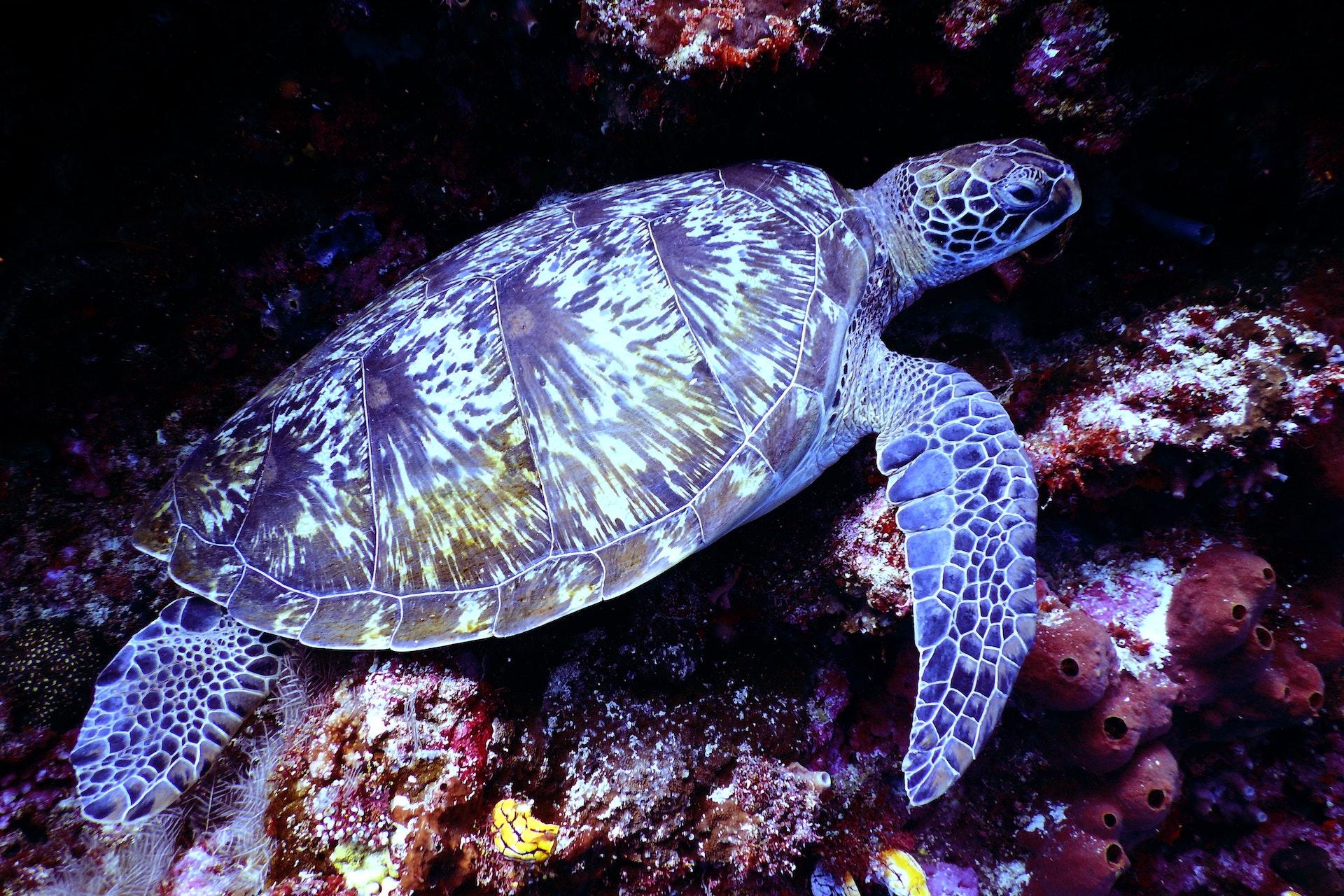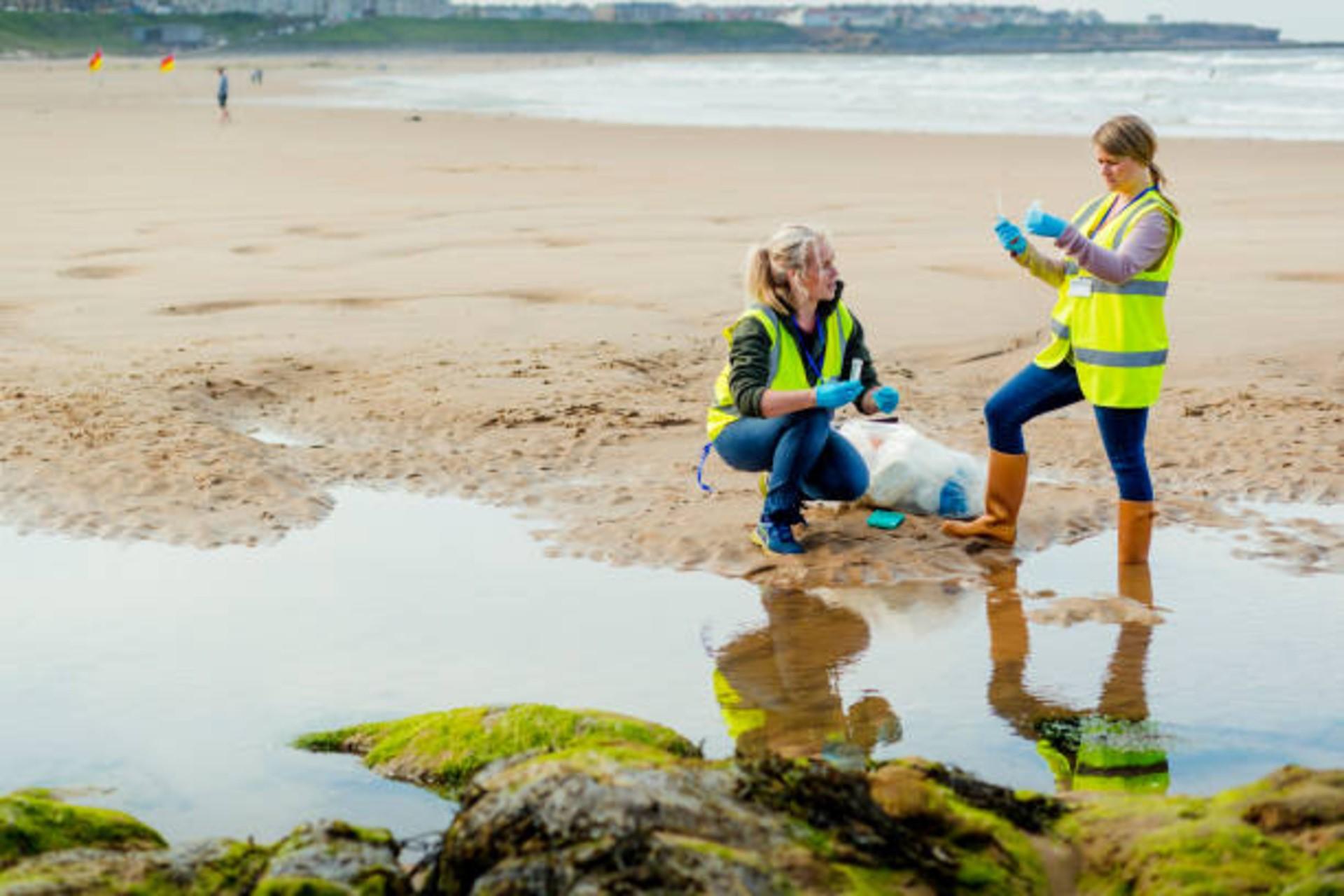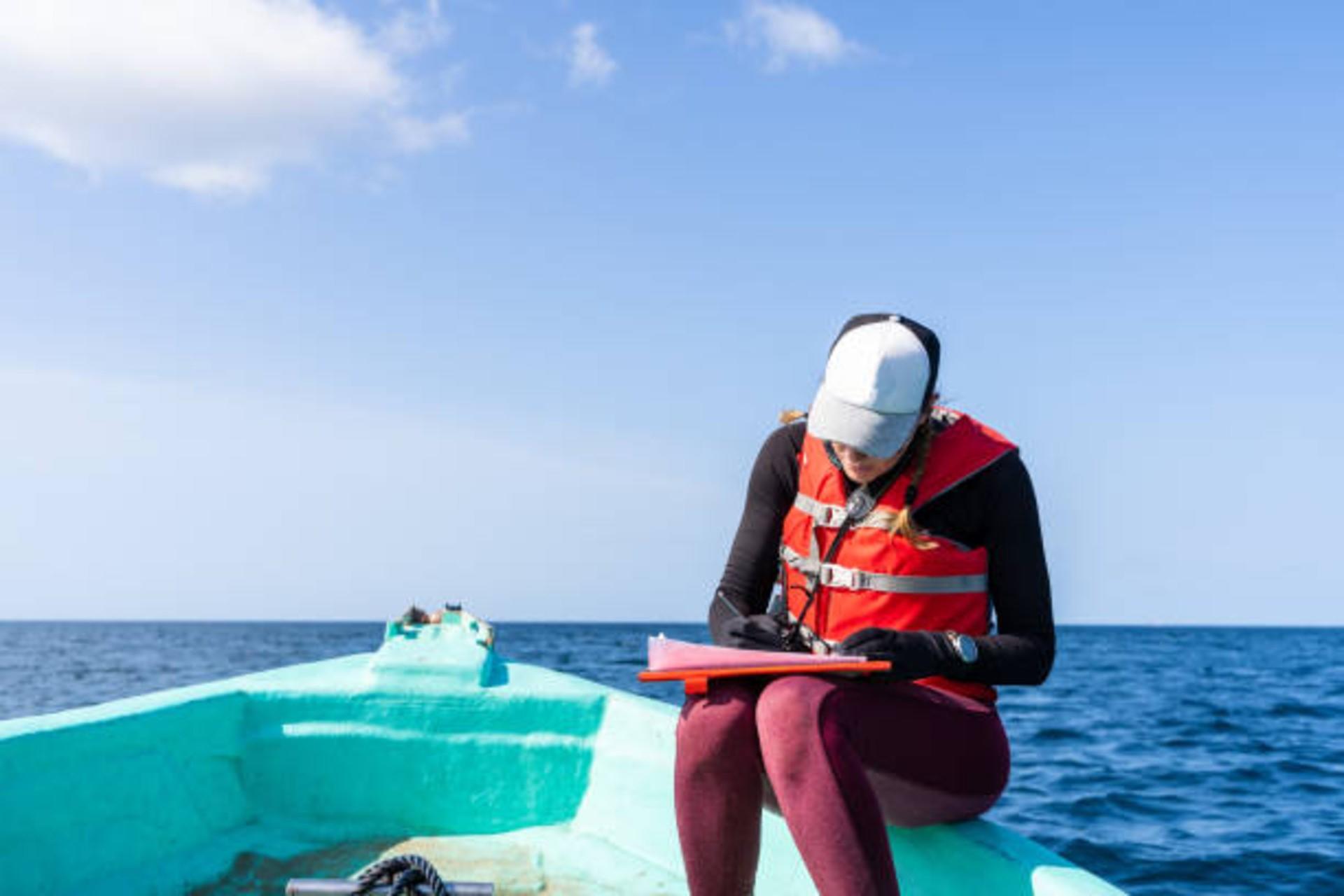Are you passionate about Marine biology study and eager to embark on a career exploring the wonders of the ocean? As a marine biologist, you can immerse yourself in the study of marine life and contribute to our understanding of the intricate ecosystems that exist beneath the waves. But where exactly can you find employment in this field?
In this article, we will highlight the various opportunities available for marine biologists, allowing you to discover the diverse range of settings where you can work and make a meaningful impact in marine biology. So, let's dive in and discover the exciting career possibilities that await you as a marine biologist.


How Can You Pursue a Career in Marine Biology Research and Academia?
Marine biologists play a vital role in research, contributing to scientific knowledge, conservation efforts, and the sustainable management of marine resources. This section explores the types of marine biologists, opportunities, and the significance of publishing research findings.
Conducting Research Studies
Marine biologist responsibilities requires engaging in various research activities to investigate marine organisms, their behaviors, and their environmental interactions. They may conduct fieldwork to collect samples, observe marine life in their natural habitats, and gather data on population dynamics, distribution patterns, and ecological processes. In the laboratory, they analyze samples, conduct experiments, and use advanced techniques such as genetic analysis and imaging technologies to delve into the intricacies of marine life.
Opportunities in Academic Institutions and Research Organizations
Academic Marine biology institutions, such as universities and marine research centers, provide excellent opportunities for marine biologists to pursue research and teaching careers. These institutions often have dedicated marine biology departments or research centers where scientists collaborate on interdisciplinary projects. As researchers, marine biologists can secure grants, design and execute experiments, supervise graduate students, and publish their findings in scientific journals.
Specialized research organizations focus on marine biology and conservation, providing access to cutting-edge equipment and technology. Examples include the Woods Hole Oceanographic Institution, Scripps Institution of Oceanography, and the Smithsonian Marine Station at Fort Pierce.
Publishing Research Findings and Contributing to Scientific Knowledge
Publishing research findings is a crucial aspect of a marine biologist's career. By sharing their discoveries in scientific journals, they contribute to the collective knowledge of the scientific community. Researchers disseminate their methodologies, results, and interpretations through publications, allowing others to build upon their work and further advance the field.
This peer-reviewed publication process also ensures scientific research's quality and integrity. Publishing research findings benefits the scientific community and marine biologists, establishing them as experts and opening up opportunities for collaboration, funding, and career advancement.
Below is the table showing which sector offers which roles for marine biologists.
| Sector | Job Roles |
|---|---|
| Research and Academia | -Research Scientist |
| -University Professor | |
| -Laboratory Technician | |
| -Field Biologist | |
| Conservation and Environmental Orgs | - Conservation Biologist |
| - Marine Policy Analyst | |
| - Environmental Educator | |
| - Marine Protected Area Manager | |
| Government and Regulatory Bodies | - Fisheries Biologist |
| - Environmental Compliance Officer | |
| - Marine Resource Manager | |
| - Environmental Impact Assessor | |
| Industry and Consulting | - Aquaculture Specialist |
| - Marine Consultant | |
| - Biotechnology Researcher | |
| - Environmental Consultant | |
| Fieldwork and Exploration | - Marine Field Technician |
| - Dive Instructor | |
| - Research Vessel Crew | |
| - Underwater Archaeologist | |
| International Opportunities | - Marine Science Researcher |
| - International Conservation Advisor | |
| - Environmental Diplomat | |
| - Marine Biology Consultant |
What Impact Can Marine Biologists Have on Conservation Efforts?
Marine biologists play a crucial role in conserving and preserving our marine ecosystems and species. Their expertise and passion for the ocean are vital in understanding the threats facing marine life and developing strategies to protect and restore these fragile environments.
The Role of Marine Biologists in Conservation Efforts
Marine biologists are at the forefront of conservation efforts, working tirelessly to understand and mitigate the impact of human activities on marine ecosystems. They study endangered species, assess the health of coral reefs and other fragile habitats, and conduct research to inform conservation strategies.
Marine biologists also play a vital role in monitoring and managing marine protected areas, identifying and addressing threats such as pollution and overfishing, maintaining marine biodiversity, and spreading awareness about its significance.
Employment Opportunities in Nonprofit Organizations and Government Agencies
Organizations like WWF, Greenpeace, and the Ocean Conservancy employ marine biologists to research, develop conservation initiatives, and advocate for marine protection policies. They collaborate with other stakeholders to achieve conservation goals.
Government agencies, such as NOAA and state/provincial departments of fisheries and natural resources, employ marine biologists to manage marine resources, enforce regulations, and provide scientific advice to ensure marine ecosystems' sustainable use and conservation.
The Significance of Protecting Marine Ecosystems and Species
Marine ecosystems are incredibly diverse and beautiful, providing numerous ecological, economic, and cultural benefits. They support fisheries that feed millions of people, contribute to climate regulation, and offer recreational opportunities. Protecting marine ecosystems and species is essential for our planet's and future generations' health and well-being.
Marine biologists study the impacts of climate change, habitat destruction, pollution, and overexploitation to develop effective conservation strategies to preserve biodiversity, restore degraded habitats, and guarantee the marine resources' long-term survival.

How Do Government and Regulatory Bodies Support Careers in Marine Biology?
Marine biologists are essential for managing and protecting marine environments, shaping policies, conducting scientific assessments, and enforcing regulations to ensure the sustainable use of marine resources.
The Role of Marine Biologists in Government Agencies and Regulatory Bodies
Marine biologists contribute their expertise to government agencies and regulatory bodies involved in managing and protecting marine resources. They provide scientific knowledge and insights to inform decision-making processes and help develop effective policies and regulations.
Their research and assessments are vital in understanding the health of marine ecosystems, assessing the impact of human activities, and identifying measures to mitigate threats and promote conservation.
Opportunities in Fisheries Management
One area where marine biologists often find employment within government agencies is fisheries management. They work to ensure the sustainable exploitation of fish stocks and maintain the ecological balance of marine ecosystems.
Marine biologists contribute to stock assessments, monitor fishing activities, set fishing quotas, and develop strategies to protect vulnerable species and habitats. Their work aims to balance the fishing industry's needs with the long-term health of marine resources.
Opportunities in Environmental Assessment
Marine biologists also play a crucial role in environmental assessment processes conducted by government agencies. These assessments evaluate the potential environmental impacts of proposed projects, such as offshore energy development, coastal infrastructure construction, or marine protected area designations.
Marine biologists contribute their expertise in assessing the potential effects on marine ecosystems, biodiversity, and sensitive species. Their findings inform decision-making and help ensure that development activities are carried out in an environmentally responsible manner.
The Importance of Policy Development and Enforcement
Policy development and enforcement are essential aspects of the work of government agencies and regulatory bodies. Marine biologists contribute to developing policies and regulations by providing scientific evidence, recommendations, and expertise.
They help ensure policies are based on the best available knowledge and align with conservation and sustainability goals. Once guidelines are established, marine biologists also contribute to their enforcement through monitoring, data collection, and compliance assessments.

What Collaborations Can Occur Between Marine Biologists and Private Sector Entities?
Marine biologists have various career options beyond academia and research institutions, including industries related to marine resources, aquaculture, and biotechnology.
Career Options in Industries Related to Marine Resources, Aquaculture, and Biotechnology
Marine biologists can work in industries that rely on marine resources, such as fisheries, aquaculture, pharmaceuticals, biotechnology, and renewable energy. They can contribute to the management and sustainability of fishing operations and aquaculture by breeding, nutrition, and health.
Marine biologists are essential for biotechnology, pharmaceuticals, and renewable energy industries, contributing to discovering and developing new drugs, bioactive compounds, and biomaterials derived from marine organisms.
Opportunities in Consulting Firms for Marine Environmental Issues
Consulting firms specializing in environmental issues provide opportunities for marine biologists to contribute their expertise in assessing and managing the impacts of human activities on marine ecosystems. These firms work with many clients, including government agencies, private companies, and nonprofit organizations.
Marine biologists in consulting firms may be involved in conducting environmental impact assessments, developing conservation and management plans, and providing guidance on compliance with environmental regulations.
Collaboration between Marine Biologists and Private Sector Entities
Collaboration between marine biologists and private sector entities is essential for promoting sustainable practices and responsible resource management. Private companies, particularly those operating in industries with significant maritime interests, recognize the value of incorporating scientific knowledge and expertise into their operations.
Marine biologists can contribute by researching, monitoring environmental impacts, developing innovative solutions, and providing guidance on best practices. This collaboration benefits both the private sector and marine ecosystems, allowing for the development of sustainable business models that consider the long-term health of the ocean.

What Exciting Opportunities Await Marine Biologists in Fieldwork and Exploration?
Fieldwork and exploration are essential for marine biologists to immerse themselves in the ocean, offering opportunities to work on research vessels, underwater expeditions, and marine sanctuaries. Hands-on experience and field observations are essential.
The Excitement of Fieldwork and Exploration in Marine Biology
For marine biologists, fieldwork and exploration are not just a means to gather data; they are adventures that bring them face-to-face with the captivating beauty and complexity of marine ecosystems. Whether diving into coral reefs, trawling through the open ocean, or exploring deep-sea habitats, marine biologists can witness incredible marine life in its natural environment.
The excitement of encountering rare species, discovering new habitats, and uncovering scientific mysteries makes fieldwork an exhilarating experience that fuels their passion for marine biology.
Opportunities to Work on Research Vessels, Underwater Expeditions, and Marine Sanctuaries
Marine biologists can work on research vessels, which provide advanced technology and equipment to conduct surveys, collect samples, and study marine life. They may also participate in expeditions to explore remote areas.
Underwater expeditions provide marine biologists with direct access to sunken realms, allowing them to study and observe marine organisms in their natural habitat. They can collaborate on research and contribute to ocean understanding.
Marine sanctuaries and protected areas provide opportunities for marine biologists to engage in fieldwork and exploration, study ecological dynamics, monitor conservation efforts, witness the positive impact of protective measures, and contribute to preserving marine ecosystems.
The Importance of Hands-on Experience and Field Observations
Hands-on experience and field observations are invaluable for marine biologists. While academic knowledge forms the foundation, being in the field gives them a deeper understanding of marine ecosystems and the intricate relationships between organisms and their environment.
Fieldwork allows marine biologists to witness ecological interactions, collect samples, measure environmental parameters, and record behavioral observations. These experiences enhance their scientific expertise and foster a connection to the marine world, fueling their dedication to protecting and conserving our oceans.
How Can Cultural Exchange Benefit Marine Biologists Work Abroad?
As a marine biologist, the world offers opportunities to explore and contribute, such as working in different countries, global research collaborations, international organizations, and cultural exchange.
Working as a Marine Biologist in Different Countries
Borders do not confine the field of marine biology, and marine biologists have the opportunity to work in various countries around the globe. From researching tropical coral reefs to studying marine mammals in polar regions, the diversity of marine ecosystems across different countries presents numerous unique opportunities and challenges for marine biologists.
Whether in coastal nations with extensive marine resources, island nations rich in biodiversity, or landlocked countries with aquatic research facilities, marine biologists can work in positions that fit their interests and qualifications.
Global Research Collaborations
International research collaborations are essential for marine biology, as they foster cross-pollination of ideas, exchange of scientific techniques and methodologies, and collectively solve global marine challenges. It helps to advance scientific knowledge and understanding of the world's oceans.
International Organizations Focused on Marine Conservation
Marine biologists can make a global impact by working with international organizations such as UNEP, IUCN, and WCU to address marine conservation issues, develop policies, and implement conservation initiatives. They can contribute their expertise and work with professionals from diverse backgrounds to shape international agendas and drive positive change for the oceans.
Value of Cultural Exchange and Contributing to Global Marine Science
Working as a marine biologist in different countries offers cultural exchange and learning opportunities. By immersing themselves in other cultures, marine biologists gain a broader perspective on marine science and conservation, understanding the challenges, approaches, and views across different regions.
Cultural exchange fosters collaboration, empathy, and understanding, enabling marine biologists to develop holistic solutions to global marine issues. By working internationally, marine biologists contribute to international marine science by sharing their knowledge, skills, and experiences while learning from and respecting the expertise of local communities and researchers.
Learn Marine Biology With Superprof
Are you passionate about marine biology and seeking rewarding career opportunities? Look no further than Superprof, your gateway to a world of possibilities. Our platform connects you with experienced marine biology tutors who can guide you toward your dream job in the field. Moreover, our experts will help you to overcome Marine biology difficulty and assist you in mastering this subject.
With Superprof's online biology classes, you can dive deep into the ocean's wonders and unlock its mysteries. Our expert tutors possess extensive knowledge of marine ecosystems and will patiently guide you through complex concepts, making learning engaging and accessible.
By choosing Superprof, you'll embark on a personalized learning journey tailored to your needs. Whether interested in research and academia, conservation and environmental organizations, government and regulatory bodies, industry, consulting, or fieldwork and exploration, our biology classes will prepare you with the skills and knowledge needed to succeed.
Take advantage of the chance to influence the field of marine biology. Contact Superprof today and set sail toward a fulfilling career in this fascinating field.
Summarize with AI:















